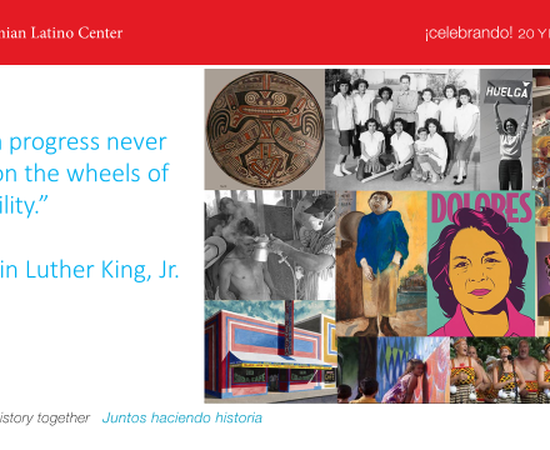
Latinos shaped this country and its culture even before there was a United States. Historically, however, museums have overlooked the Latino experience despite the fact that Latino history is American history, Latino art is part of the American canon, and Latino research scientists’ contributions are American achievements. What responsibilities do museums have to tell more complete stories? Who should tell them? What changes in institutional culture will ensure programmatic authenticity, accuracy and organizational diversity? And what role do museum studies and related programs have in preparing future professionals? In 2010 the Smithsonian Institution established the Latino Curatorial Initiative enabling its museums, archives and traveling exhibition service to hire Latina and Latino content experts to drive research, organize exhibitions, build collections, inform educational programs and digital content, and publish about the Latino experience. The impacts have been major and multiple. If museums are to accurately recover the past, honestly engage with the present, and creatively imagine the future, they will need diverse, first voice practitioners to lead the way in empowering museums to better serve diverse and deserving communities.
Eduardo Díaz, director of the Smithsonian Latino Center, is a 36-year veteran of the Latino cultural field. The Center supports research, exhibitions, public and educational programs, digital content and collections about the Latino experience in the U.S. Díaz is the former executive director of the National Hispanic Cultural Center in Albuquerque, and previously served as the City of San Antonio’s director of Cultural Affairs. Currently, he is a board member of the American Alliance of Museums. Díaz has a law degree from UC Davis, and bachelor’s in Latin American Studies from San Diego State.
Cosponsored by the Heritage Studies and Public History program, the Race, Indigeneity, and Sexuality Studies (RIGS) Initiative, and the Departments of Art, Art History, History, and Chicano & Latino Studies.